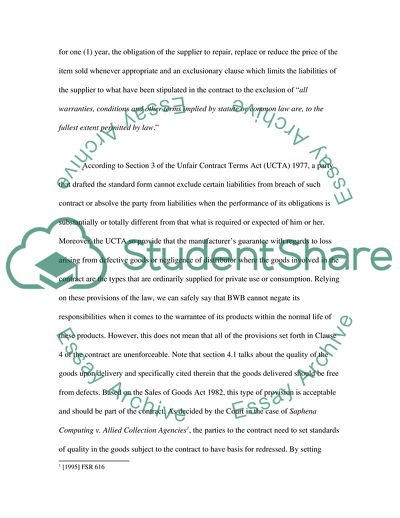Cite this document
(Understanding the Legality and Enforceability of Exclusionary Clauses Essay, n.d.)
Understanding the Legality and Enforceability of Exclusionary Clauses Essay. https://studentshare.org/law/1737405-commercial-law-the-enforceability-of-clause-4-under-english-common-law-and-the-unfair-contract-terms-act-1977
Understanding the Legality and Enforceability of Exclusionary Clauses Essay. https://studentshare.org/law/1737405-commercial-law-the-enforceability-of-clause-4-under-english-common-law-and-the-unfair-contract-terms-act-1977
(Understanding the Legality and Enforceability of Exclusionary Clauses Essay)
Understanding the Legality and Enforceability of Exclusionary Clauses Essay. https://studentshare.org/law/1737405-commercial-law-the-enforceability-of-clause-4-under-english-common-law-and-the-unfair-contract-terms-act-1977.
Understanding the Legality and Enforceability of Exclusionary Clauses Essay. https://studentshare.org/law/1737405-commercial-law-the-enforceability-of-clause-4-under-english-common-law-and-the-unfair-contract-terms-act-1977.
“Understanding the Legality and Enforceability of Exclusionary Clauses Essay”. https://studentshare.org/law/1737405-commercial-law-the-enforceability-of-clause-4-under-english-common-law-and-the-unfair-contract-terms-act-1977.


